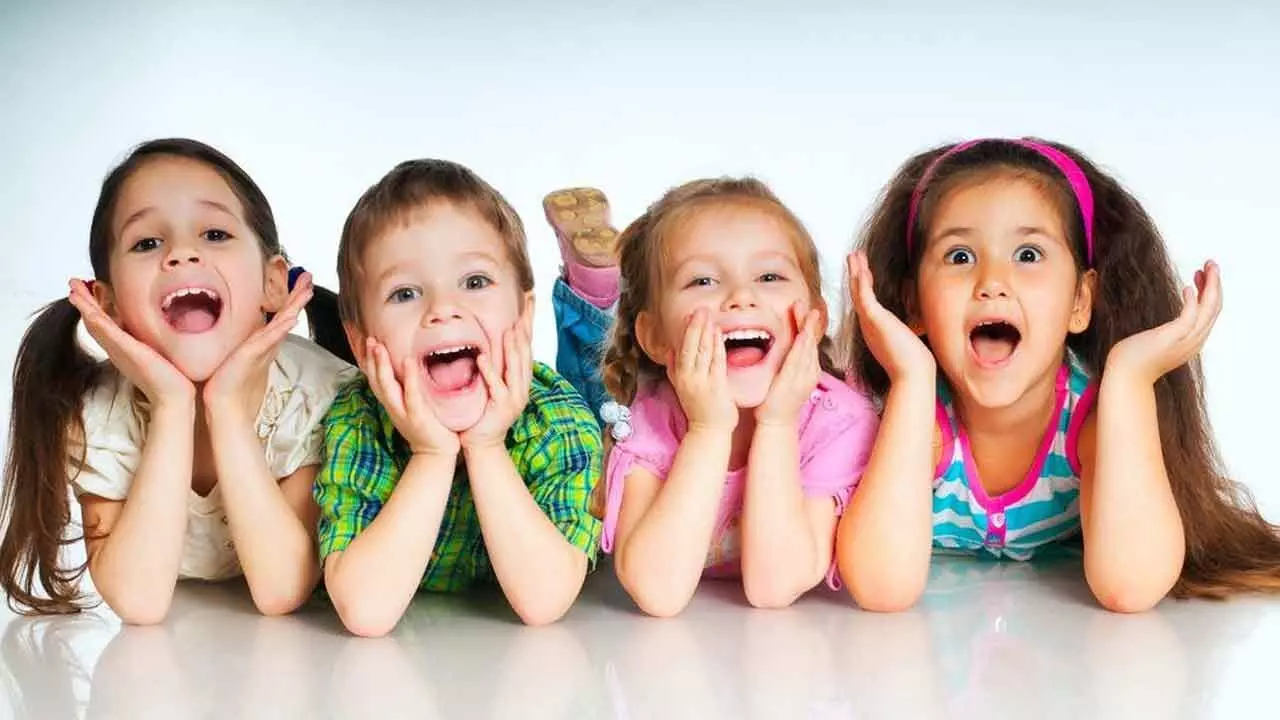Live
- PM Modi Visits Indian Labour Camp And Engages With Diaspora In Kuwait
- Central PSUs record 47 per cent jump in net profit for 2023-24, market cap doubles
- Man In Madhya Pradesh Dies By Suicide, Leaves Video Alleging Harassment
- AAP Likely To Replace Shoaib Iqbal With Son Aaley Muhammad Iqbal For Matia Mahal Seat
- Multi-Storey Building Collapse In Mohali Triggers Massive Rescue Operation
- Anti-Corruption Officers Assaulted By Revenue Clerks In Uttar Pradesh
- Earthquake tremors felt again in Prakasam district
- G Trisha, spinners star as India win inaugural U19 Women’s Asia Cup title
- Security Forces Arrest Two Terrorist Associates In North Kashmir's Sopore
- PM Modi graces Arabian Gulf Cup opening ceremony in Kuwait as 'Guest of Honour'
Just In
Today is Children’s Day: Recognising the rights, care & education of every child


Children’s Day, celebrated as Bal Divas in India, is observed annually on November 14 to honor and uplift children’s rights, welfare, and education....
Children’s Day, celebrated as Bal Divas in India, is observed annually on November 14 to honor and uplift children’s rights, welfare, and education. This significant day coincides with the birthday of India’s first Prime Minister, Pandit Jawaharlal Nehru, who was known for his deep affection for children and his vision for their future. Pandit Nehru, lovingly called “Chacha Nehru,” believed that children are the true strength and future of a nation, deserving special attention, protection, and empowerment. Although historically connected to Nehru’s legacy, Children’s Day also reflects the ideals of Dr. A.P.J. Abdul Kalam, former President of India, a visionary leader whose life and work greatly impacted Indian students and the field of education.
The celebration of Bal Divas emphasizes several important aspects of child welfare, including children’s rights, the need for nurturing care, and the importance of accessible, quality education. Events on this day range from cultural performances, storytelling sessions, and debates to distributing books, toys, and other educational materials. The overarching theme of these celebrations, however, is to raise awareness among people about the essential rights and protections that every child deserves, ensuring that they grow up in an environment that fosters their physical, emotional, and intellectual development.
Education lies at the heart of Children’s Day celebrations, as it is viewed as the single most important factor that can change the lives of young people. Dr. Kalam’s contribution to education has become a powerful inspiration for Children’s Day initiatives. Known as the “People’s President” and the “Missile Man of India,” Kalam was dedicated to empowering young minds, urging them to dream big and pursue their passions in science, technology, and beyond
Kalam’s vision of education was holistic. He advocated for reforms in India’s education system to make learning more accessible, relevant, and inspiring for all children, regardless of their socioeconomic background. For him, education was more than just textbooks and examinations; it was about fostering curiosity, creativity, resilience, and a sense of social responsibility. On Children’s Day, Kalam’s ideals serve as a reminder that our efforts should be directed not only toward academic instruction but also toward creating environments that help children become compassionate, capable, and responsible citizens.
While Children’s Day is a joyful celebration filled with festivities, it also serves as a solemn reminder of the challenges many children still face today. Across the world, issues like child labor, poverty, malnutrition, and lack of access to education continue to obstruct the growth and potential of millions of young lives. In India, where child rights are a significant focus, initiatives on Children’s Day aim to bring attention to these issues, encouraging government bodies, schools, and communities to actively work together for a better future for children.
In essence, Children’s Day is about cherishing and upholding the dignity and dreams of every child. It is a day to reflect on the power of education as a transformative force and to recommit ourselves to the ideals set forth by leaders like Nehru and Kalam. Through collective action and sustained dedication, we can create a society where all children are free to learn, grow, and become the best versions of themselves.

© 2024 Hyderabad Media House Limited/The Hans India. All rights reserved. Powered by hocalwire.com






